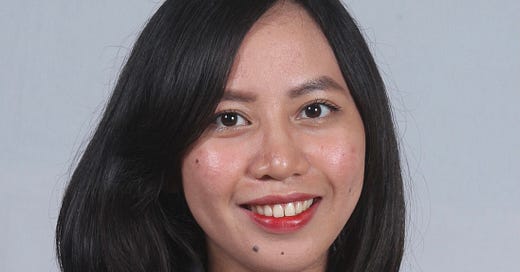“What can I offer?” After having to shift careers and move to new workplaces thrice in the short five years of my work life, I thought this question would have gotten easier to handle. Instead, the institutional burdens of academia to an unpublished—and quite honestly, invisible—writer in the humanities like myself have been nothing but apparent in my return to teaching. This same question pulsates in every aspect of my social figure as a professional. In academia, this means I have to be teaching but also managing flawless clerical work, research and publication, and graduate school. I am a high school teacher, have no degree in philosophy, and have not published any of the work I’ve produced in my early years as a master’s degree student in literature. Being in such an insecure position, it was inevitable for me to ask this same question before I joined Women Doing Philosophy and the Brown Babe’s Burden workshop in October.
Having to be asked either covertly or overtly what contributions one can give when building professional networks is a dreaded but common situation. I am acutely aware that despite my desire to do work in philosophy as a literature student, my credentials to be accepted in organizations are massively underwhelming. Regardless, I could not brush off my mind the call for paper submission poster of Women Doing Philosophy on Facebook. In June, they organized the second Brown Babe’s Burden workshop with Resilience and the Global Pandemic as themes. I remember reading the poster and asking myself the same question, “What can I offer?” The poster detailed a short introduction to WDP and BBB, the goal of the workshop and the basic requirements for submission, and a short vision of how the workshop output will be put together for a book series by Routledge. It must be how WDP effectively carries itself as a welcoming philosophy group that I instantly felt I have a place in the organization. The mission of WDP is to “transform the culture of philosophy into a more habitable, just, and inclusive discipline.” That was the welcome banner to me.
I major in literature for my master’s degree but I have a wide variety of research interests. I am invested in culture and development studies and activism but also passionate about philosophy. At this point, I could have successfully listed all the pet peeves of conventional organizations when looking for an affiliate. And yet, I care about finding my place greatly because the feeling of isolation or irrelevance in the work you love doing is discouraging. How often are we presented with the opportunity to have healthy relationships with fellow professionals who see value in what one does? I thought I was shooting for the moon when I submitted my working abstract titled “Writing Resistance and Resilience: The Space-Making Ability of Filipino Women Farmers Through Shared Recipes,” a theoretical inquiry on Filipino women farmers, their roles and responses towards crises and structural injustices, and the space-making ability of their writings. I used “Lutong Gipit: Mga Recipe sa Panahon ng Krisis” published by Amihan National Federation of Peasant Women, Rural Women Advocates, and Gantala Press as an archive of women’s resilience and resistance. With very little expectations of being accepted, I was surprised to receive an enthusiastic email from Dr. Tracy Llanera.
The workshop has been the most comfortable virtual space I’ve ever been in. The BBB committee accommodated participants from varying backgrounds and research interests and ensured the workshop will focus on finding intersections among the works of the Filipina scholars. I was there as a literature major who is into philosophy and with no feather in my cap I can consider an entry pass, but not once did I feel out of place. Of course, I cannot deny I had the sweatiest palms in my life while I was presenting my working paper. Despite having a clear end to my paper, I worried about the entanglement of several disciplines in the writing process. I did not shy away from admitting this to the group. The BBB committee and the participants made it clear at that point—on the very first day, that is to say—that inquiry, doubt, and feedback are all welcome in that culture of learning they continue to establish in their activities. I never felt I had to defend my place or my reputation. I was there because there were people who believed in the potential of my proposal. Everyone was encouraging and constructive. The five-day insightful discussions and exchange of readings and published works went like a breeze.
Any scholar’s shining moment will be the moment they feel they can raise questions or share their insights unabashed. I reached my shining moments at the BBB workshop. WDP stands firmly in its vision to challenge the rigid values and combative and tokenistic practices that continue to ostracize women philosophers in professional networks. Like Uma Narayan who was so fortunate to find supportive people who never asked “but, is it really philosophy?”, I had the most empowering experience with WDP.
Roma Angelou T. Dizon
Languages Unit, Philippine Science High School - Central Luzon Campus




